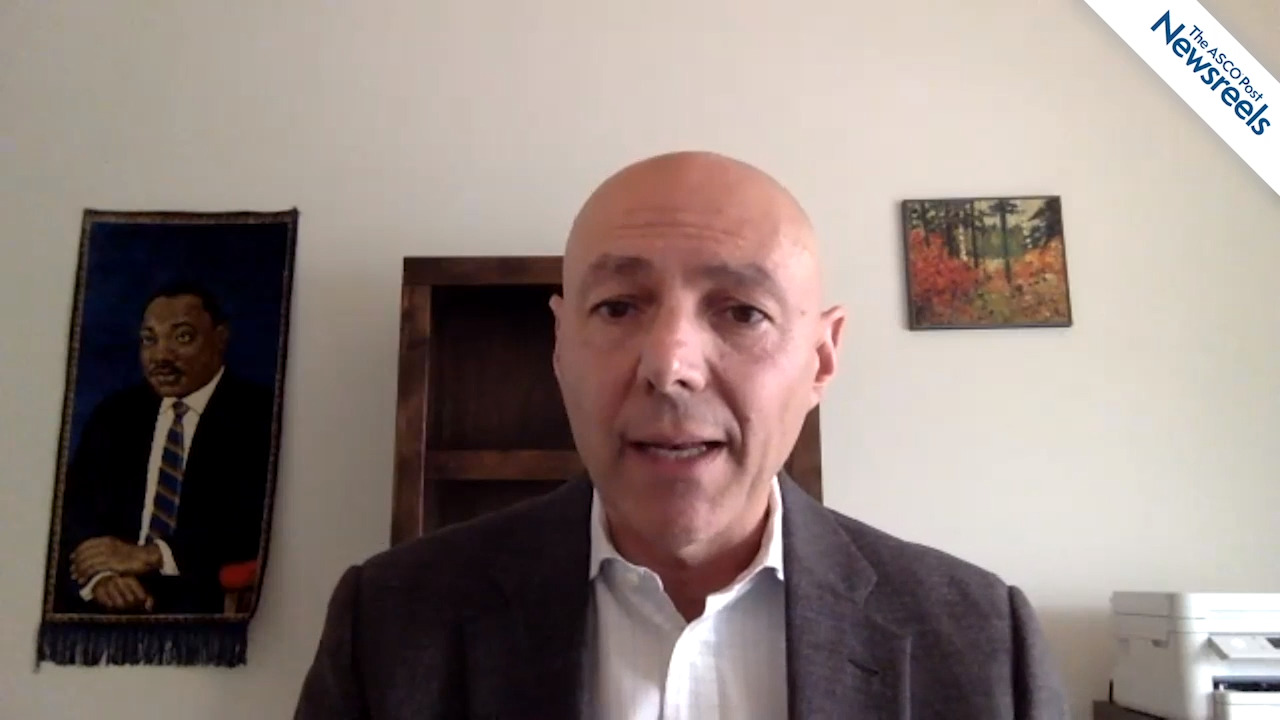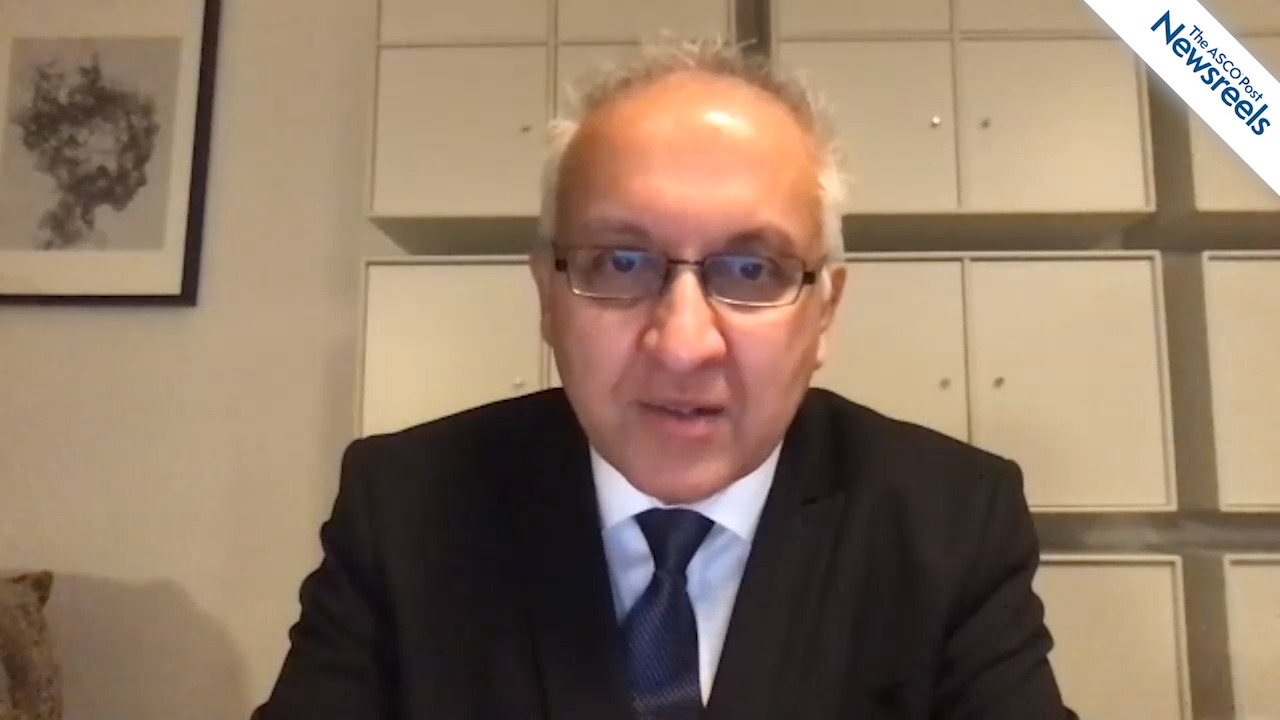Cécile Le Pechoux, MD, on NSCLC: Comparing Postoperative Radiotherapy With No Radiotherapy
ESMO Virtual Congress 2020
Cécile Le Pechoux, MD, of the Institut Gustave Roussy, discusses new findings from an international trial on an old controversy: What is the role of postoperative radiotherapy in locally advanced (stage III) non–small cell lung cancer? The researchers enrolled patients with completely resected disease and mediastinal N2 involvement (Abstract LBA3).
The ASCO Post Staff
Ezra E.W. Cohen, MD, of the University of California, San Diego, discusses primary results of the phase III JAVELIN trial of locally advanced squamous cell carcinoma of the head and neck, in which the immune checkpoint inhibitor avelumab was combined with chemoradiotherapy followed by avelumab maintenance. Although the study results were negative, Dr. Cohen suggests other regimens that may prove to be effective (Abstract 910O).
The ASCO Post Staff
Monika K. Krzyzanowska, MD, MPH, of the Princess Margaret University Health Network, discusses study findings on remote proactive telephone-based toxicity management for patients with breast cancer receiving chemotherapy. Although the telehealth program was associated with fewer grade 3 toxicities and a slight decline in quality of life, it did not lead to fewer emergency department visits and hospitalizations (Abstract LBA87).
The ASCO Post Staff
Toni K. Choueiri, MD, of Dana-Farber Cancer Institute, discusses the first results from the phase III CheckMate 9ER trial, which suggested the combination of nivolumab and cabozantinib is safe. It showed activity in progression-free and overall survival, as well as in overall response rates and may have a place in treating patients with metastatic renal cell carcinoma (Abstract 696O_PR).
The ASCO Post Staff
Andreas du Bois, MD, PhD, of Kliniken Essen Mitte, discusses the NORA and INOVATYON studies of patients with recurrent ovarian cancer, detailing the findings for women in China with platinum-sensitive disease and women internationally who received trabectedin and pegylated liposomal doxorubicin (PLD) followed by platinum at disease progression vs carboplatin and PLD after disease progression (Abstract LBA29 and LBA30).
The ASCO Post Staff
Mansoor Raza Mirza, MD, of Copenhagen University Hospital, discusses phase II study results that showed the combination of palbociclib and letrozole, compared with placebo plus letrozole, improved progression-free survival in patients with estrogen receptor–positive advanced or recurrent endometrial cancer (Abstract LBA28).





